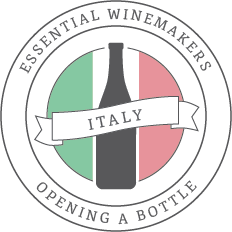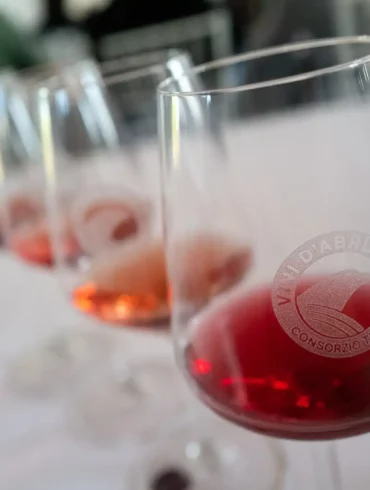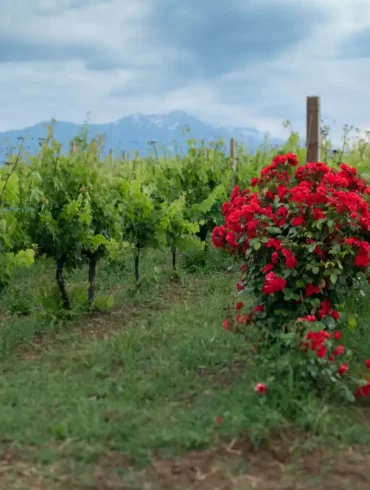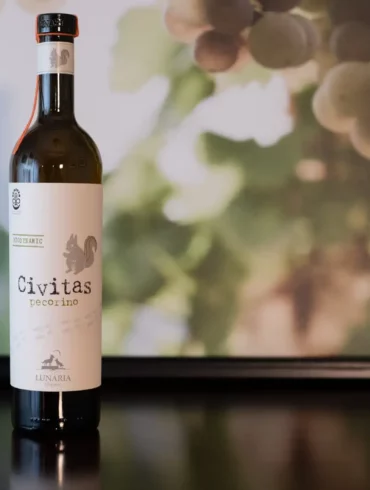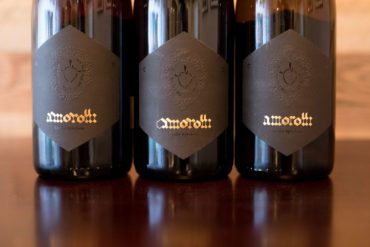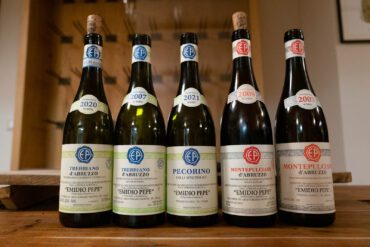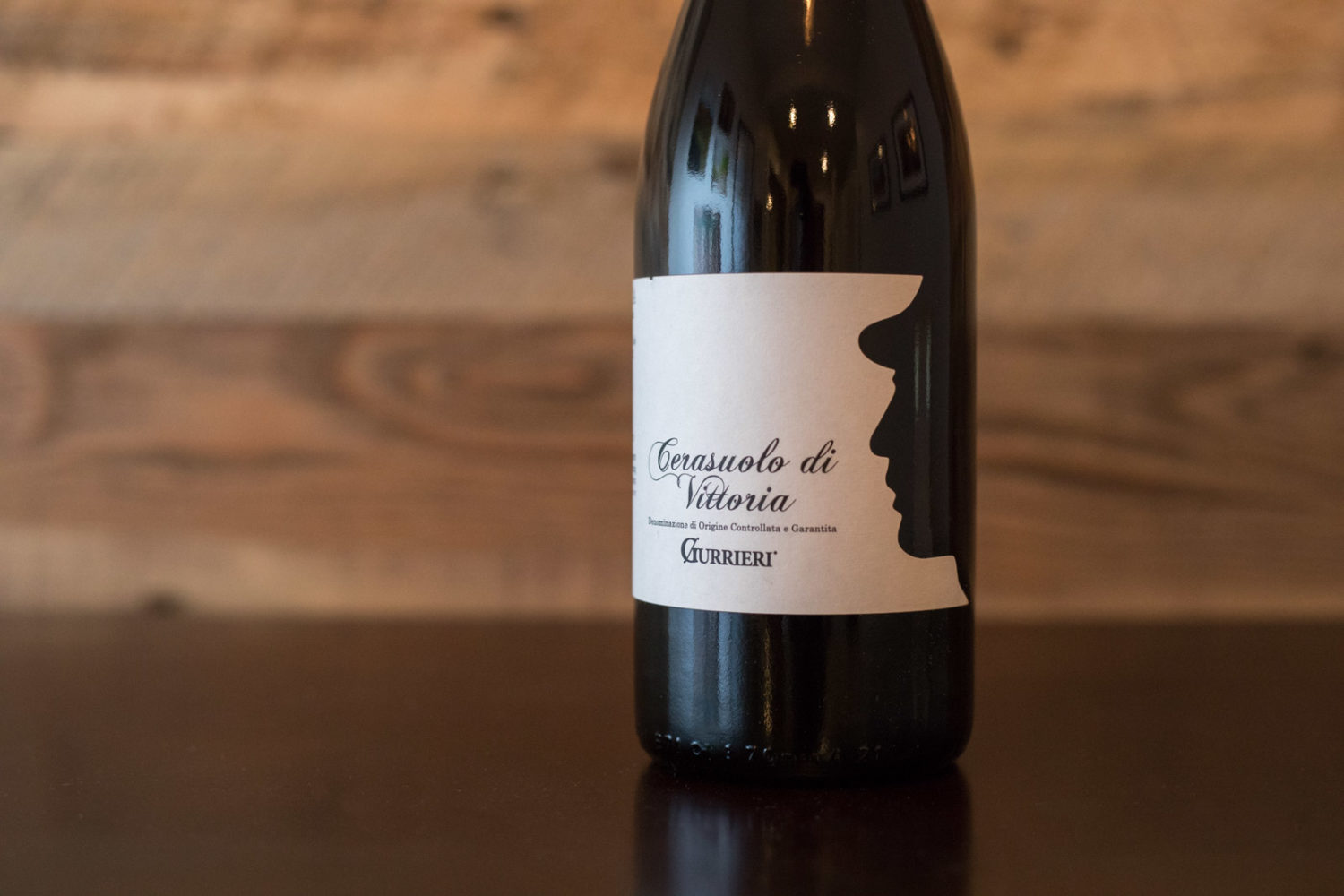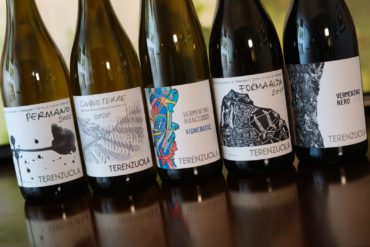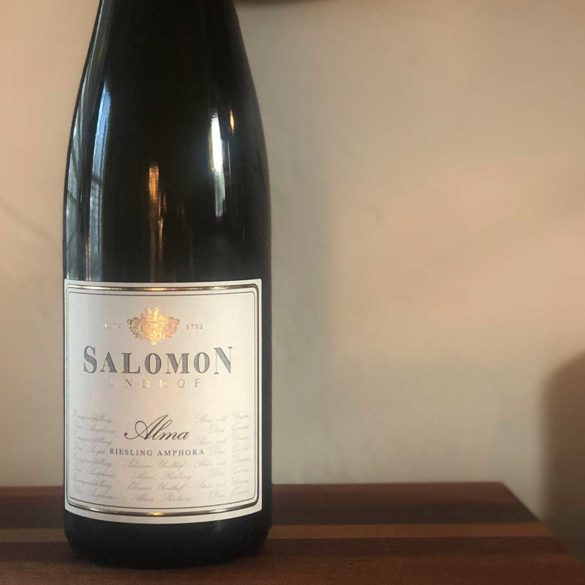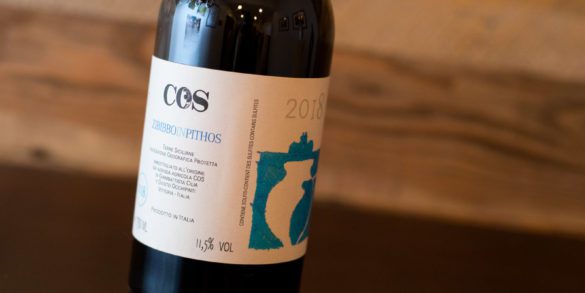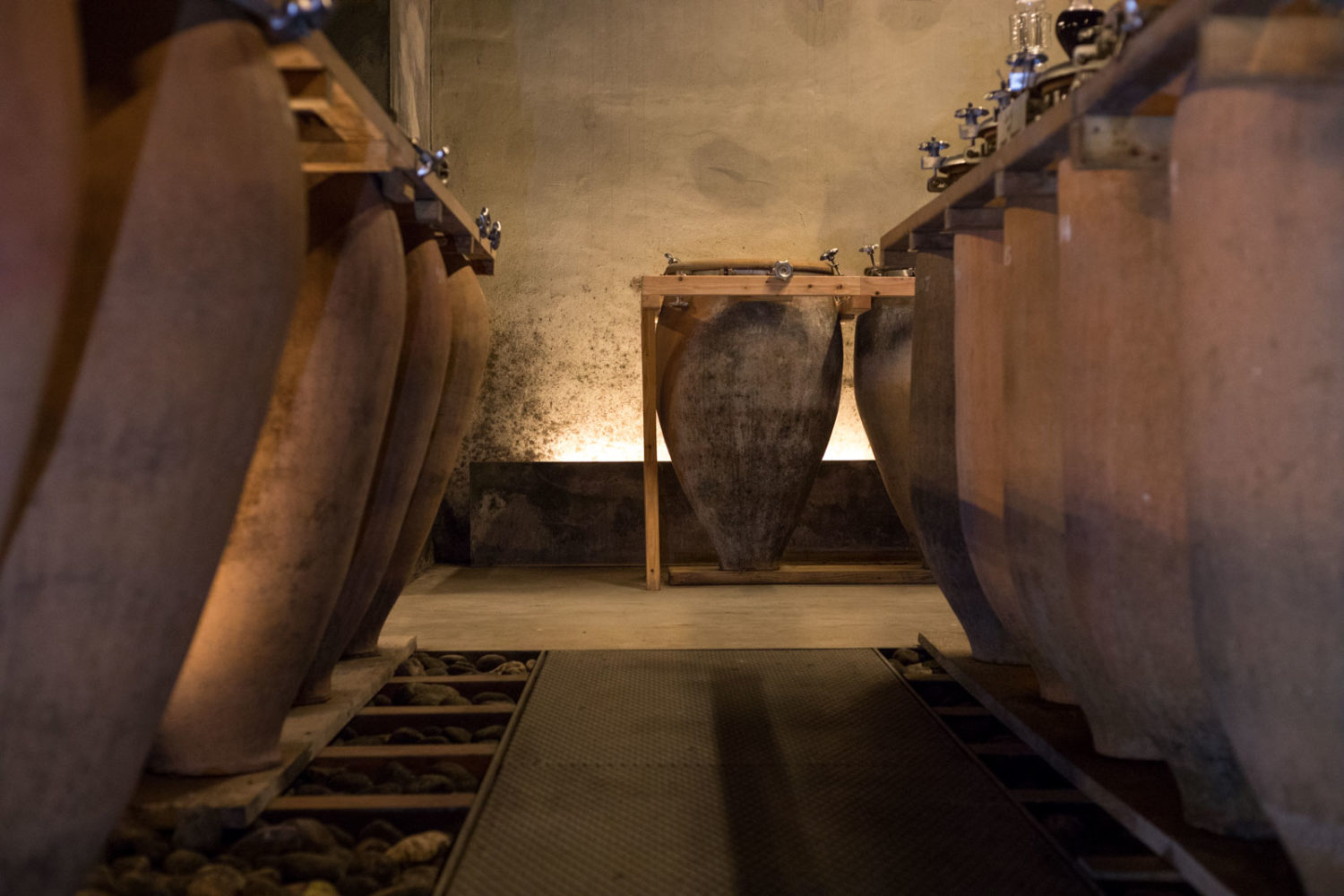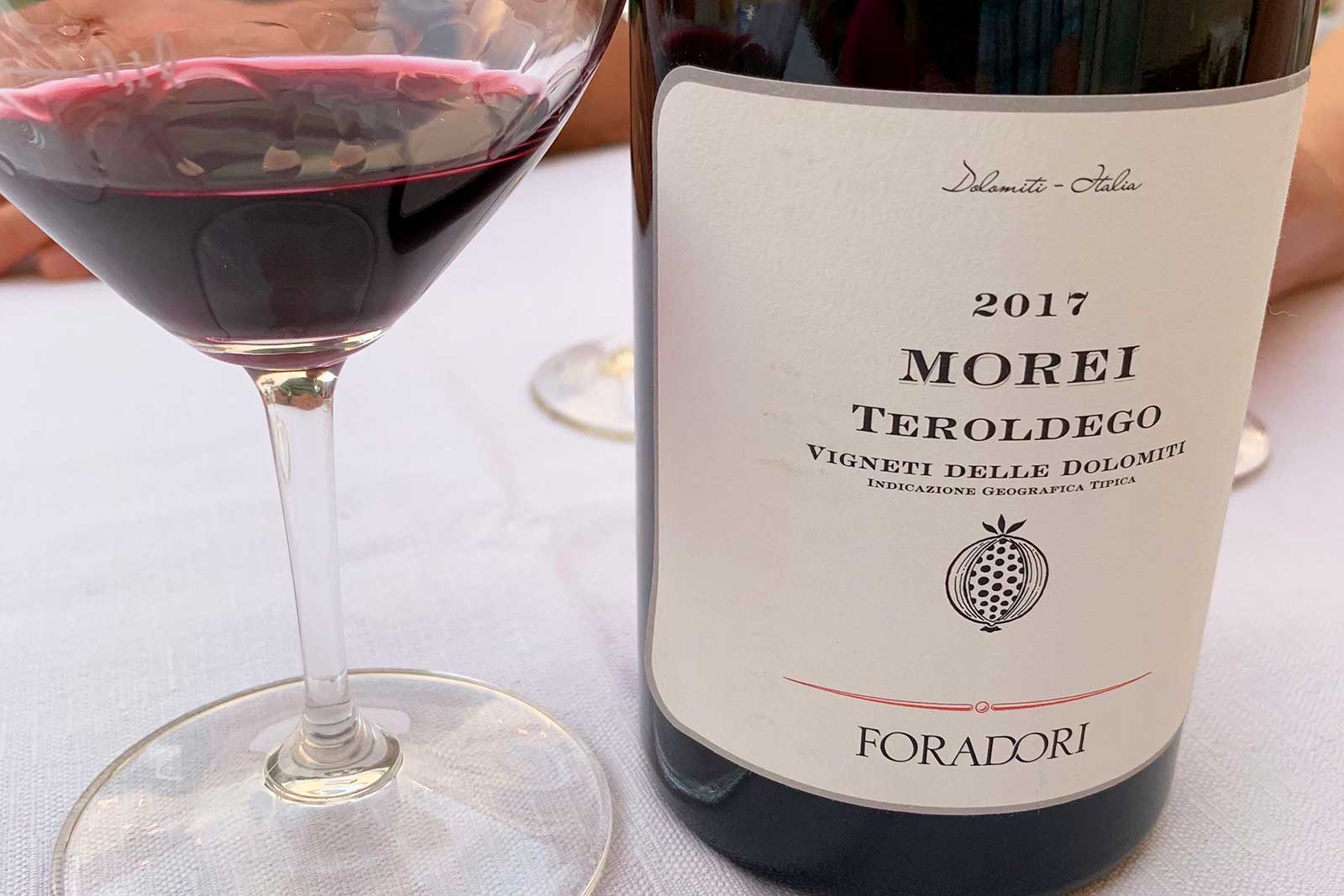Francesco Cirelli
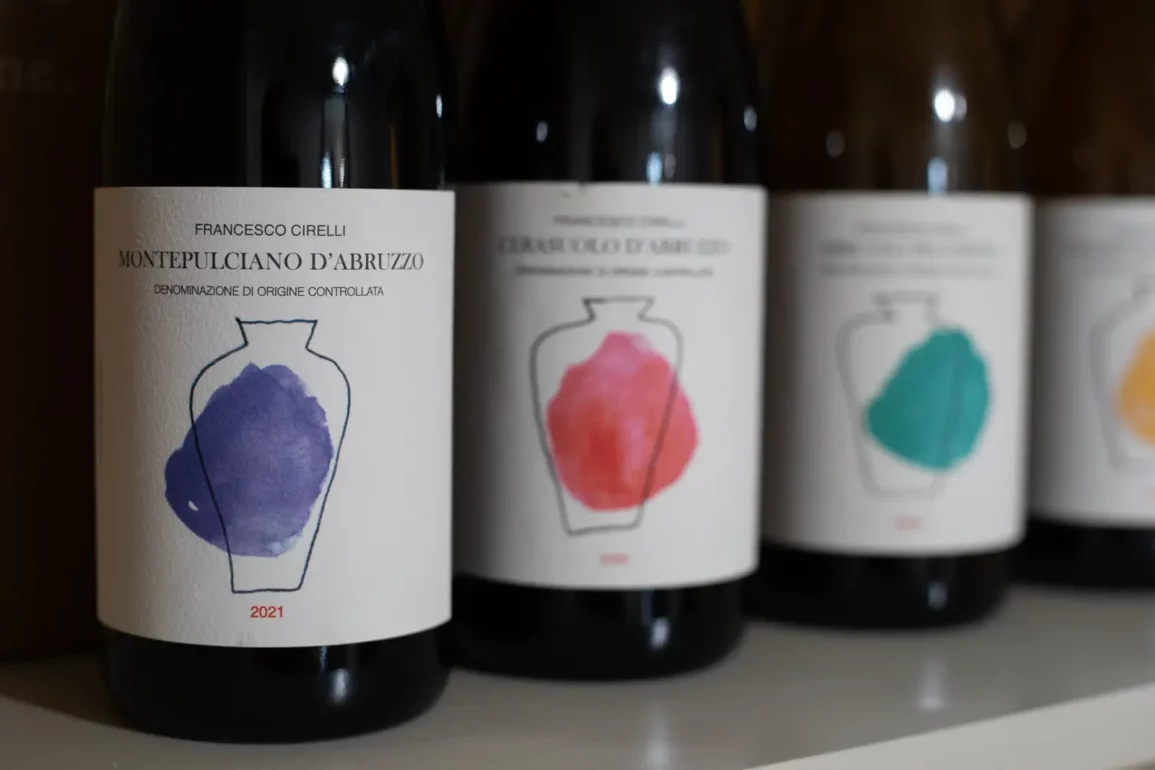
Why Francesco Cirelli is Essential
Abruzzo is bursting with entrepreneurial talent in the winemaking sector. It makes sense. There are emerging grape varieties to get excited about (especially Pecorino), and compared to the rest of Italy, vineyard land is on the cheap side. Furthermore, the tapestry of agricultural uses for land makes the region less prone to the pitfalls of monoculture.
On Francesco Cirelli's farm — located in a verdant cleft just northwest of Pescara — you see this borne out again and again. Wine is merely one of many products (although he'll tell you its his most important). Animal husbandry, olives and other crops are a vital part of the farm's cycle, and there is a beautiful "glamping" agriturismo that you can stay at, too, if you find yourself in this remote stretch.
In the cellar, Cirelli is firmly in the low-intervention camp, and he prefers to age his top wines in clay amphora jars, the better to let them relax and not be reductive, while not imprinting them with oaky flavors. "I want to make soulful wines," he told me during my visit, and that's clearly what he's done. But furthermore, these wines are the most fun in Abruzzo. They invite you with each aroma and want to play on the palate. Why does everything have to be so serious? they seem to ask.
My first taste of his Montepulciano d'Abruzzo in Colorado was a game-changer for me and that variety, and since then, the wines have only improved. During my latest tasting, there wasn't a trace of "natty-ness" to any of his wines — something that befalls a lot of naturalista winemakers whose low-intervention approach also opens the door to flaws.
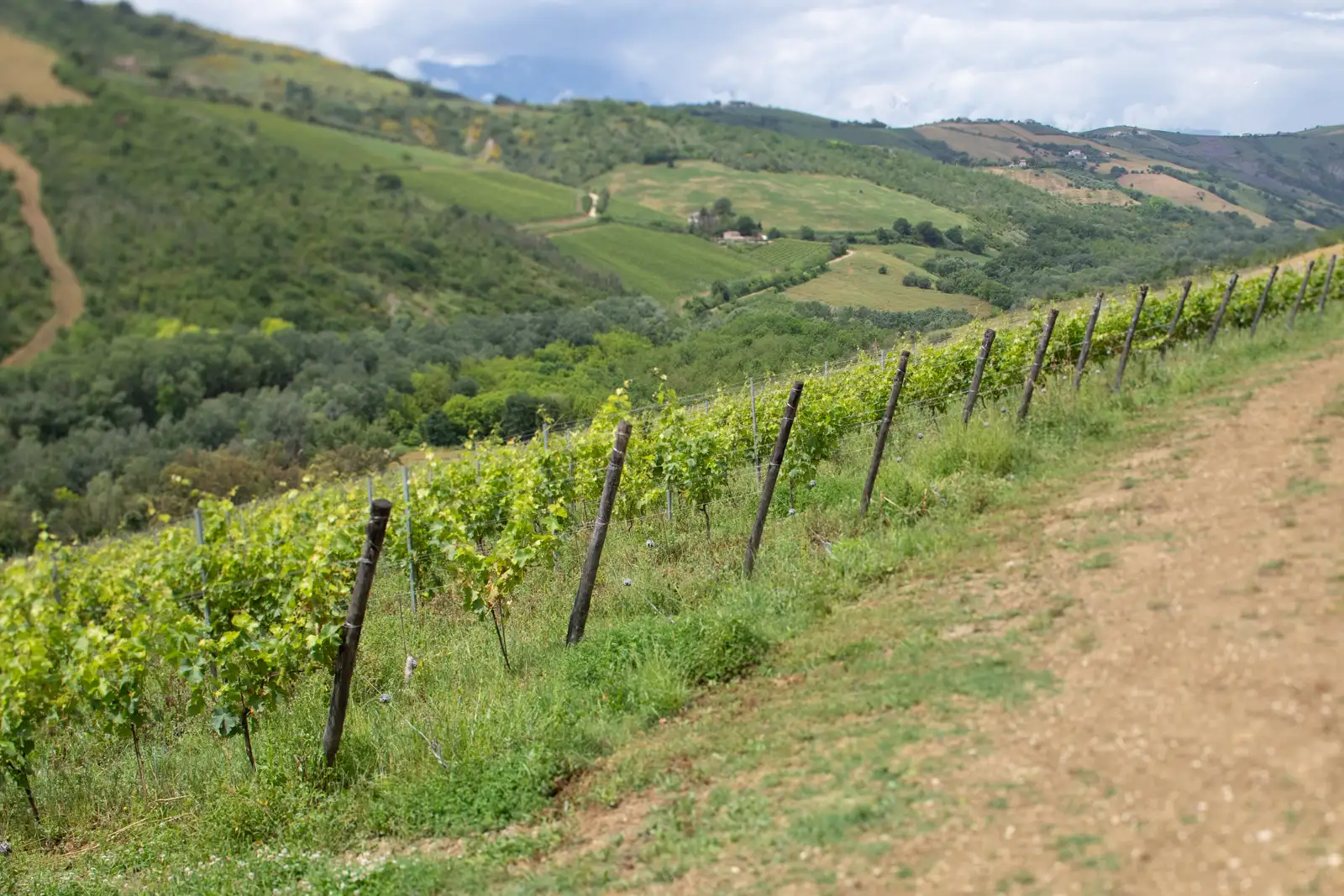 The vineyards of Francesco Cirelli are located in a steep but verdant valley near Pescara, Abruzzo in eastern Italy. ©Kevin Day/Opening a Bottle
The vineyards of Francesco Cirelli are located in a steep but verdant valley near Pescara, Abruzzo in eastern Italy. ©Kevin Day/Opening a BottleAtri, Abruzzo
Grapes: Montepulciano, Trebbiano, Pecorino
Appellations/Cru: Cerasuolo d'Abruzzo DOC, Trebbiano d'Abruzzo DOC, Montepulciano d'Abruzzo DOC
American Importer: Zev Rovine
Originally listed: December 2023
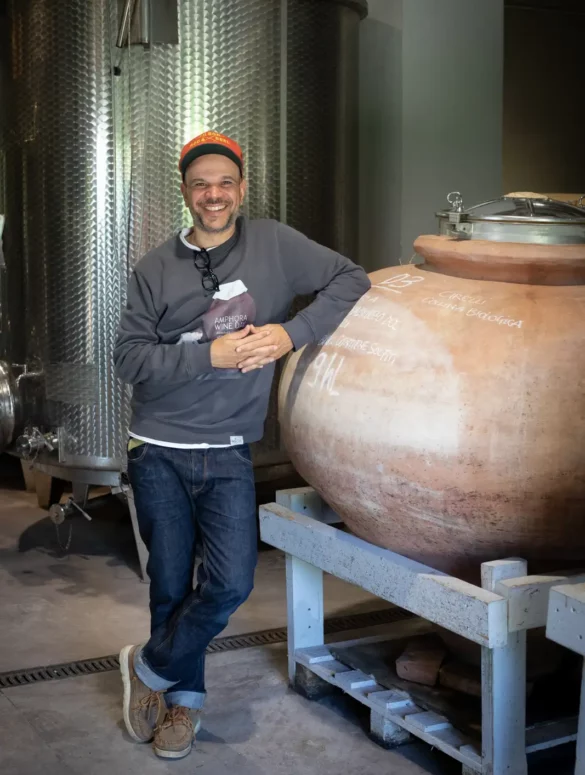 Winemaker Francesco Cirelli in his cantina. ©Kevin Day/Opening a Bottle
Winemaker Francesco Cirelli in his cantina. ©Kevin Day/Opening a Bottle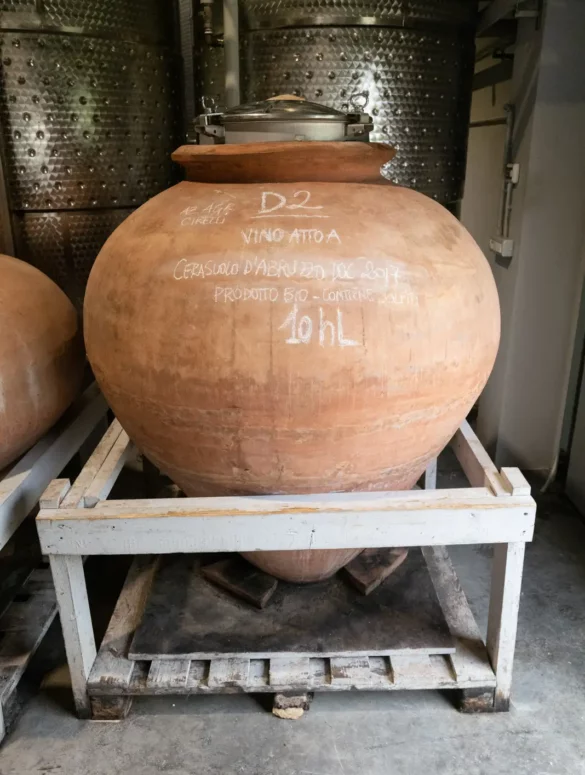 The amphora-aged Cerasuolo d'Abruzzo is a real treat. ©Kevin Day/Opening a Bottle
The amphora-aged Cerasuolo d'Abruzzo is a real treat. ©Kevin Day/Opening a BottleWines to Seek Out
Cirelli wisely has a négociant line of wines called Collina Biologica which acts as a supplemental revenue stream for the whole endeavor. Those wines are crisp, refreshing and easy-drinking. But the real magic lines in the Anfora line detailed below.
Francesco Cirelli "Anfora" Trebbiano d'Abruzzo
One of the better examples of Trebbiano d'Abruzzo. Immediately graceful and open, which is a hallmark of Cirelli's style of winemaking. Caressing aromas suggestive of lemon, white peach and vanilla bean — even without the oak — and on the palate it has a creamy but subdued expression.
Francesco Cirelli "Anfora" Abruzzo Pecorino
Pecorino continues to emerge as one of Italy's most captivating white wines with this top-notch bottling. Whisper-light aromas reveal a wine where fruit is not the headline, but rather a stony sensation — not unlike Fiano or Carricante. There is a salty-like quality to the finish on this wine that begs for another sip.
Cirelli's amphora-aged Pecorino macerates for 24 hours and is allowed to age 18 months once fermentation is complete. But this is a white wine, not an amber (Pecorino's pigment wouldn't achieve such a hue).
Francesco Cirelli "Anfora" Cerasuolo d'Abruzzo
There are many reasons to celebrate the Abruzzo's rosato; variety being chief among them. Cirelli's version is silky and caressing, with expansive flavors on the palate, yet it is never overwhelming. To me the fruit tones were akin to lightly cooked strawberries, with a hint of dark flowers and a juniper-like herbaceousness that makes this one of my First-Taste recommendations for Cerasuolo d'Abruzzo.
“In the past times, [Cerasuolo] was considered to be the real farmer wine — the wine of the poor people," he told me during my visit. "And so it is very linked to our roots and heritage.” If Cirelli isn’t satisfied with the vintage’s ability to express what he wants in a Cerasuolo, he’ll skip the vintage and devote the fruit to his entry-level wine.
Francesco Cirelli "Anfora" Montepulciano d'Abruzzo
A supple, fresh and juicy rendition of Montepulciano, Cirelli's "Anfora" might be the most playful Montepulciano d'Abruzzo on the market. It pops on the palate with joyous dark berrries and botanical tertiary notes, all held together by a silkiness that I find to be very enjoyable. This is not a Montepulciano d'Abruzzo that you'd recognize, but if you give it time, the leathery soul of the grape shows up on the finish. I found this wine to be fascinating.
Cirelli's wine could qualify for the Colline Teramano DOCG, but because that appellation name is unknown on the marketplace — and it because doesn't include "Montepulciano d'Abruzzo" in the name — he has opted for the DOC level. This is yet another case where the intentions of codifying quality via the DOCG/DOC system don't line up with reality. All the more reason to create lists like this to showcase where the most talented winemakers in Italy are.
